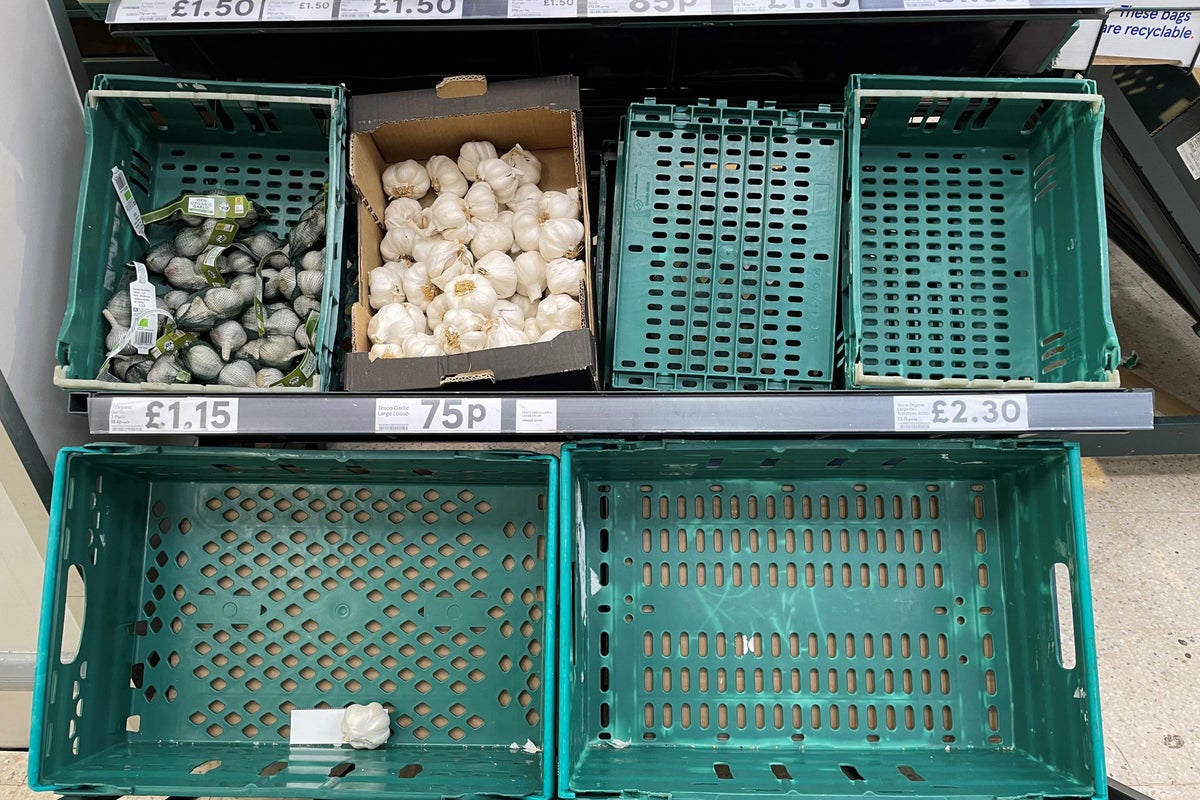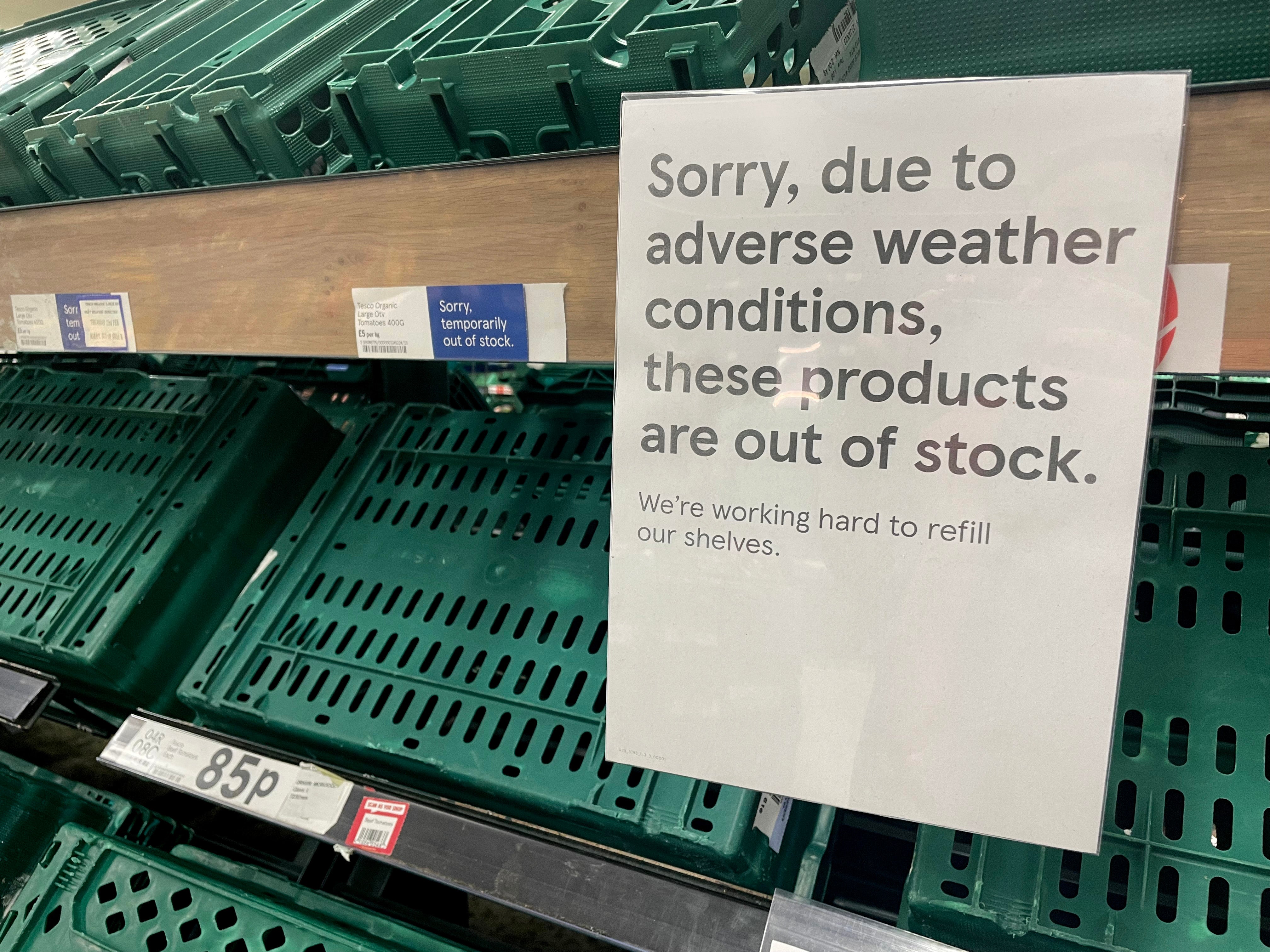
First it was tomatoes – now leeks could be off the menu as growers warn that British-grown supplies could be exhausted by April.
High temperatures and a lack of rain, followed by a period of cold weather, are being blamed for creating the “most difficult season ever”.
Supermarkets are already limiting the sale of tomatoes and other fruit and vegetables because of a lack of imports.
Environment Secretary Therese Coffey said on Thursday that British consumers should eat more turnips instead of imported food, but the Leek Growers Association said shoppers will have to rely on leeks grown abroad through May and June.
Tesco and Aldi are limiting customers to three of tomatoes, peppers and cucumbers as a precautionary measure, while Asda is also limiting customers on lettuce, salad bags, broccoli, cauliflower and raspberries. Morrisons has set a limit of two items per customer across tomatoes, cucumbers, lettuce and peppers.
Retailers believe the problems stem from poor yields on the continent and north Africa, and that supplies will improve in the coming days or weeks.
Leek growers are warning that some people may not be able to buy British-grown leeks on St David’s Day and could have to use imported leeks to make traditional dishes such as Welsh cawl, leek and potato soup or a Wrexham bake.
Tim Casey, chairman of the Leek Growers Association, said: “Leek farmers are facing their most difficult season ever due to the challenging weather conditions.

“Our members are seeing yields down by between 15 per cent and 30 per cent. We are predicting that the supply of homegrown leeks will be exhausted by April, with no British leeks available in the shops during May and June, with consumers having to rely on imported crops.”
Leek is used to celebrate the Welsh national day on March 1 because of a battle in 640 AD, when the Briton King Cadwallader defeated invading Saxons and the Welsh army distinguished themselves by wearing leeks in their hats.
Since then the green root vegetable, which provides a good source of manganese, vitamin B6, vitamin C, folate and iron, has become a Welsh national symbol.
Meanwhile, the Lea Valley Growers Association has said some of the UK’s major growers are delaying planting crops because of high energy costs.
It has about 80 members across an area that includes Greater London, Hertfordshire and Essex who produce around three-quarters of the UK’s cucumbers and peppers, as well as a lot of aubergines and tomatoes.
The Association’s secretary Lee Stiles told the BBC that high energy costs and low supermarket prices are making it harder for growers to earn a living.
Many are delaying planting or growing less and about 10% have left the sector altogether.
Andrew Blenkiron, a root vegetable farmer in Suffolk, said he is planning to reduce the size of his crop this season by 300 acres in case there is more hot and dry weather like last year.
East Anglia still remains in drought status, along with Devon, Cornwall and the Isles of Scilly.
The National Drought Group has said the country is one hot, dry spell away from plunging more areas into drought conditions.
Mr Blenkiron said: “We dare not take the risk of planting these crops that demand volumes of water through the summer if we can’t guarantee that supply.
“So we’ve had to back off. And I would suggest that’s fairly common across certainly East Anglia.
“This last summer we just had enough water in our reservoirs.
“Because of the intense heat, principally in the high evapotranspiration rates on crops of potatoes and onions, we found ourselves using 25% more water than we would have in the usual season.
“It completely depleted our reservoir stocks and it increased the costs significantly. And the cost increase wasn’t just because of the extra 25%, it was because of the 400% increase in electricity costs as well. So it was a real double whammy.”






